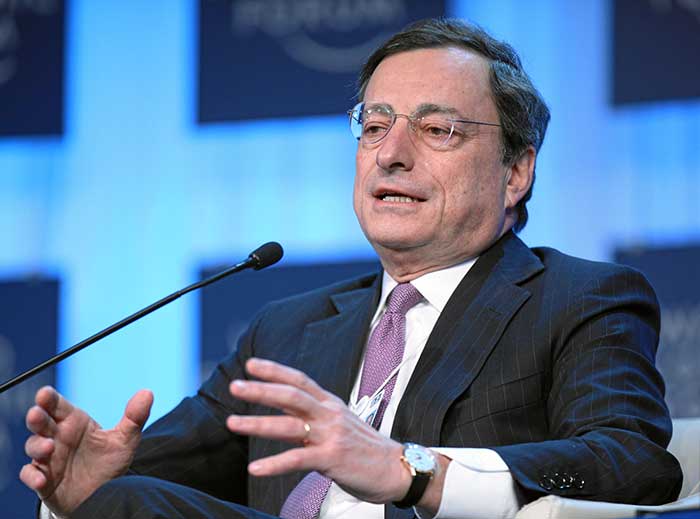web_mario_draghi_-_world_economic_forum_annual_meeting_2012.jpg

Mario Draghi, president of the European Central Bank
Mario Draghi, the bank’s president, said yesterday that the board had decided to keep interest rates at the record low of 0%, the bank deposit rate at -0.4% and did not discuss expanding the €80bn per month bond-buying programme.
While the bank increased its predictions for eurozone growth slightly for 2016, up to 1.7% from 1.6%, it trimmed its forecasts for both 2017 and 2018 down to 1.6% in both years.
Draghi attributed this “dampened” recovery to still-subdued foreign demand, partly related to the uncertainties following the UK referendum outcome and the sluggish pace of structural reforms.
But he added that the changes were not substantial enough to “warrant a decision to act” at this time, although the ECB said it would use all the instruments available within its mandate if warranted.
The bank’s monthly bond-buying, a programme of quantitative easing, will run until the end of March 2017, “or beyond, if necessary, and in any case until it sees a sustained adjustment in the path of inflation consistent with its inflation aim”.
The ECB is targeting a eurozone inflation rate of levels below, but close to, 2%, compared to the 0.2% currently predicted for this year. The bank forecasts it will rise to 1.3% in 2017, and 1.6% the year after.
It is likely the bank will have to prolong and perhaps redesign its QE in after March in order to tackle stubbornly low inflation.
All of the monetary stimulus measures will also be reviewed again in December, when the ECB’s next round of economic forecasts are published.
In a snub to the other political stewards of Europe’s economy, Draghi also noted that in order to “reap the full benefits” of the ECB’s stimulus, “other policy areas must contribute must more decisively, both at the national and European level”.
He asserted that structural reforms to raise productivity, improve the business environment and ensure the provision of adequate public infrastructure are necessary in all euro area countries, while governments must also pursue more growth friendly fiscal policies.












